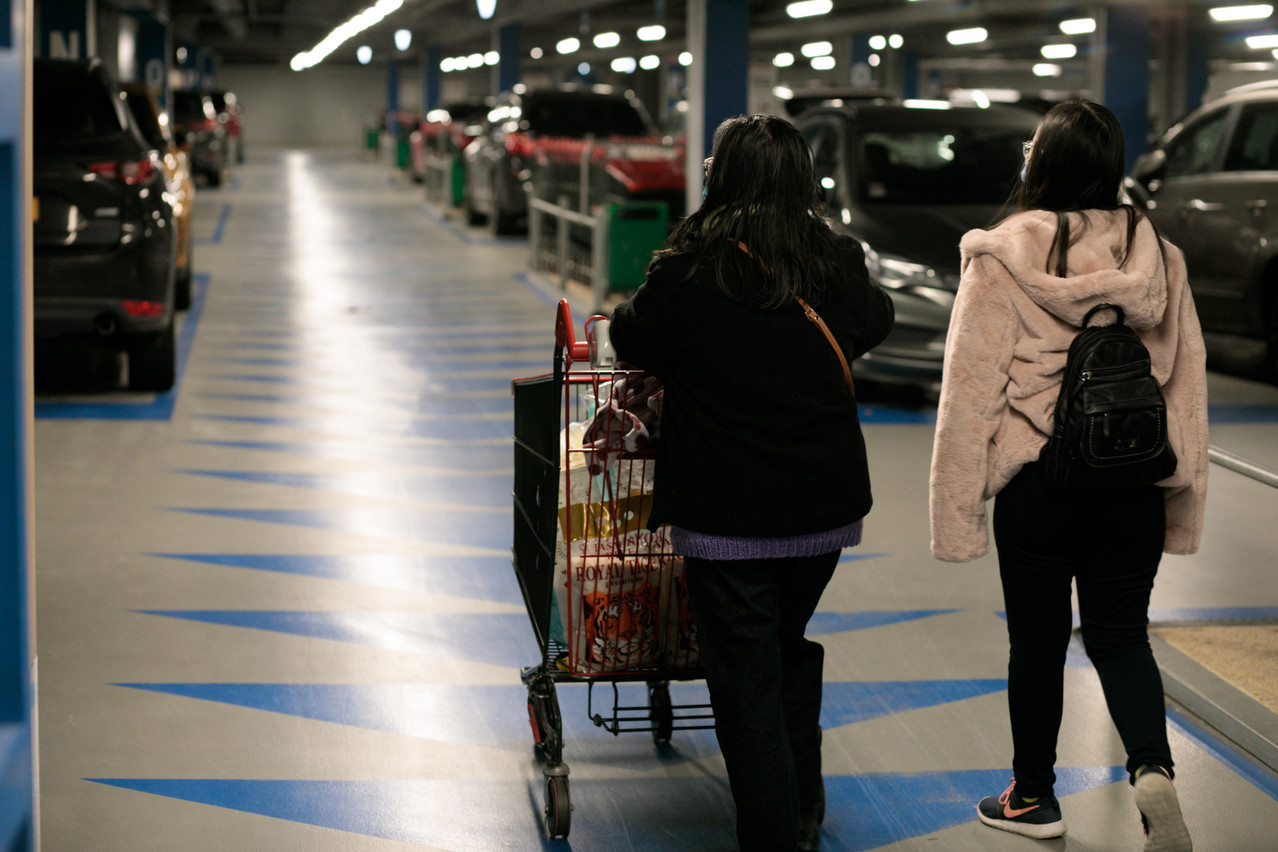Employees of the 70 shops in the Kirchberg shopping centre will have to pay €176 per month from January to use the underground car park of the shopping centre after 26 years of free parking.
The OGBL trade union called last week for the withdrawal of the measure, which should affect 300 workers. “Almost all of the employees in the shopping centre have salaries around the social minimum wage. Many of them are also part-time employees,” said David Angel, central secretary of the OGBL’s commerce union.
He believes that workers in the majority of Luxembourg’s shopping centres benefit from free parking, with the exception of those in the Cloche d’Or, who are currently required to use the nearby P+R or can access the underground car park for €100 per month, excluding weekends.
The operator of the Kirchberg car park--Auchan--justified the end of free parking by the current economic context and the investments necessary for the modernisation and transformation of the garage. However, the company has asked each employer to cover the parking costs of its employees. “The fact that some retailers want to pass on a charge that is their responsibility to their own employees is not our responsibility,” underlined Sophie Morle, head of press relations at Auchan.
Parking, an element of attraction and retention?
A Statec study published in 2019 suggests that 5% of employees in Luxembourg benefit from the payment of transport or parking costs, which makes it the third most widespread benefit in kind, behind a company car for private use (8%) and meal vouchers or access to a canteen (18%). In total, 26% of employees receive benefits in kind in Luxembourg.
In the capital, parking spaces are at certain times of the day and it is clear that they are .
Between the need for employer attractiveness and the respect of sustainability commitments, companies are faced with questions about the approach to be followed in terms of parking. “The mobility strategy is the subject of many exchanges between our member companies,” acknowledged Laetitia Goergel, project manager at IMS Luxembourg, a network of companies committed to CSR. IMS notes that ideas for good practices are emerging, such as the provision of priority parking spaces for employees who carpool.
Read also
“70% of journeys in Luxembourg are made by car and limiting parking is an incentive for modal shift,” added Goergel. This can be done by using public transport or soft mobility alternatives as well as the P+Rs, the .
Parking space for more than 1 in 2 workers in the capital
Clearly, access to all workplaces by public transport is illusory, especially as many employees have private obligations that force them to use their car. Sometimes they benefit from parking spaces or special tariffs, sometimes they pay. “I pay between €20 and €26.40 for parking per day,” confided Laurent, an employee in the capital. He has gotten into the habit and accepts the situation, although he is not opposed to his employer intervening. For the moment, his requests have gone unheeded.
The latest mobility survey by the City of Luxembourg shows that 62% of its residents have a parking space at work. 55% of non-residents of the capital state that they have a parking space in the capital linked to their job.
Would the advantage therefore be widespread, to the point of creating distortions? In the Kirchberg shopping centre, “many shopkeepers are struggling to find staff and are faced with requests to transfer their employees to shops that have parking facilities included,” said Angel.
If it becomes more difficult to access a place, it also becomes more complicated to find people to go and work there.
IMS Luxembourg points out that removing parking facilities makes it more difficult to get to the workplace and consequently increases travel time, which can affect the attractiveness of the company. “If it becomes more difficult to access a place, it also becomes more complicated to find people to go and work there,” noted Georgel.
Facilities generally provided by the largest employers
Among the main employers in Luxembourg who responded to our requests, paid parking seems to be the exception. At CFL (4,580 employees), the emphasis is naturally on the use of public transport, but the railway company specified that “we also provide parking spaces for our employees who have no choice but to take the car, which is the case, for example, for employees working outside train and bus operating hours or who work on sites that are not close to a station or bus stop.”
At Cactus (4,460 employees), “we do not ask for any contribution from our employees in terms of parking, and for the vast majority of our employees parking is available and free,” replied the retailer.
For ArcelorMittal (3,660 employees), an application for reserving parking spaces has been in operation for two and a half years for sites that do not have enough spaces. “It gives full satisfaction,” assured the communication department of the steel group.
Finally, at Luxair (2,840 employees), the company provides free parking spaces for its employees, it said. “Because of the location of its buildings in an industrial zone, the airline wants to offer them the possibility of access to parking, because the option of coming to work by public transport has certain limits,” the company added.
This story was first published in French on . It has been translated and edited for Delano.

